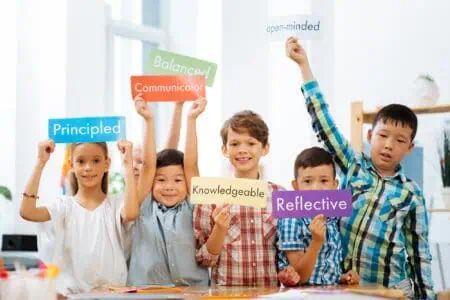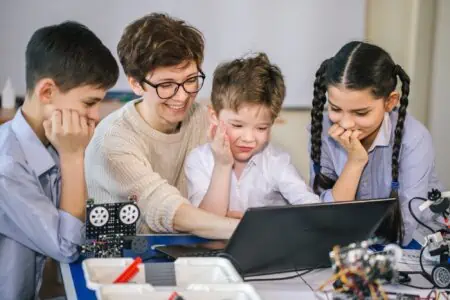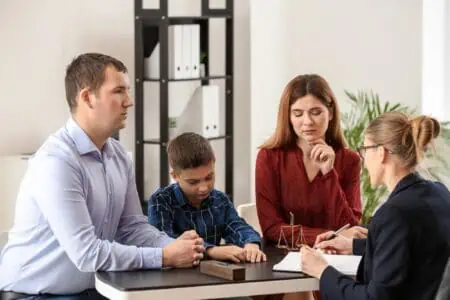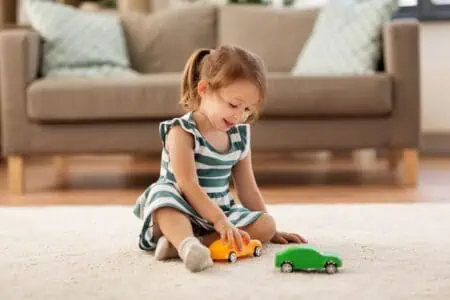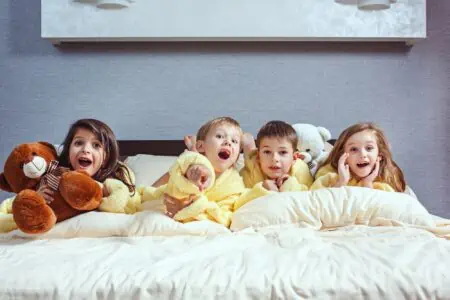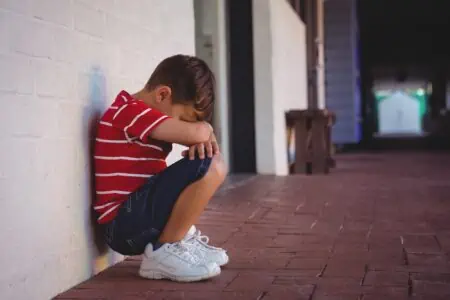Adjectives are the secret sauce of language. They turn bland sentences into vivid pictures and help us describe the world in full color. Whether you are a parent helping with elementary homework or a writer looking to sharpen your vocabulary, mastering adjectives is essential.
To help you on this journey, I have curated a massive list of over 900 examples. Plus, I’ve included five engaging activities to help children understand this vital part of speech. Let’s dive in.
What Are Adjectives?
You might be wondering, what exactly is an adjective?
Simply put, adjectives are describing words. They are the part of speech that modifies a noun (a person, place, or thing). They provide details on how something looks, feels, tastes, sounds, or acts.
For example, you could say, “I have a dog.” That is a complete sentence, but it is boring. If you use adjectives, you can say, “I have a fluffy, energetic dog.” Now, we can visualize the pet.
Adjectives can also describe quantity or order. Check out the sentence below to see these descriptors in action (I’ve bolded them for you):
I ran to the busy store to buy bright flowers, six oranges, and a pink swimsuit that was the right size.
Adjectives From A to Z
Sometimes you just need a big list of words to spark inspiration. Whether you are teaching grammar or writing a story, here are fun adjectives for every letter of the alphabet.
Adjectives That Start With the Letter A
- Able
- Absolute
- Acceptable
- Aching
- Adorable
- Adventurous
- Aesthetic
- Aging
- Airy
- Alarming
- Alternative
- Ambient
- Angry
- Animalistic
- Anticlimactic
- Apologetic
- Appropriate
- Argumentative
- Armed
- Articulate
- Artificial
- Assertive
- Atomic
- Attached
- Audible
- Authoritative
- Automatic
- Average
- Aware
- Awesome
Adjectives That Start With the Letter B
- Backward
- Bad
- Baked
- Bearded
- Beautiful
- Beefy
- Bent
- Best
- Biracial
- Bitter
- Black
- Blue
- Booksy
- Botanical
- Bountiful
- Bossy
- Boxy
- Braided
- Brainy
- Brazen
- Broken
- Breathless
- Breezy
- Bridal
- Brick
- Broad
- Brown
- Buff
- Bumpy
- Burnt
Adjectives That Start With the Letter C
- Cagey
- Calculated
- Calorific
- Canadian
- Candid
- Carsick
- Catastrophic
- Cathartic
- Cavernous
- Central
- Ceremonial
- Certified
- Chained
- Cheap
- Choppy
- Charismatic
- Circular
- Circumstantial
- Civil
- Closed
- Cloudy
- Comical
- Common
- Compliant
- Concise
- Cordial
- Cotton
- Crazy
- Creamy
- Curly
Adjectives That Start With the Letter D
- Daft
- Damaged
- Damp
- Dandy
- Dangerous
- Dead
- Decent
- Decorative
- Deep
- Defective
- Defensive
- Delayed
- Delicate
- Dependent
- Depressed
- Destructive
- Different
- Difficult
- Digital
- Direct
- Discolored
- Doe-eyed
- Domed
- Double-edged
- Doughy
- Drafty
- Drowsy
- Dry
- Dumb
- Dusty
Adjectives That Start With the Letter E
- Eager
- Earthy
- Echoey
- Edgy
- Educated
- Effective
- Efflorescent
- Eighteen
- Elusive
- Emergency
- Emotional
- Empathetic
- Endangered
- Energetic
- English
- Engrossed
- Enormous
- Entertaining
- Enthusiastic
- Entitled
- Escapist
- Eternal
- Ethical
- European
- Even
- Eventful
- Exalted
- Executive
- Exempt
- Expressive
Adjectives That Start With the Letter F
- Facial
- Fair
- Faithful
- False
- Famous
- Far
- Fashionable
- Fearful
- Feminine
- Feverish
- Fictional
- Fidgety
- Fierce
- Fifth
- Filmy
- Final
- Financial
- Flat
- Fleshy
- Flexible
- Flowery
- Foam
- Foreign
- Forgetful
- Fragrant
- Free
- Fresh
- Friendly
- Futuristic
- Fuzzy
Adjectives That Start With the Letter G
- Garbage
- Gassy
- Gaunt
- Geeky
- Genetic
- Gentle
- Germy
- Ghostly
- Giant
- Gigantic
- Ginger
- Glad
- Glamorous
- Glassy
- Global
- Glorious
- Godly
- Golden
- Good
- Gory
- Graceful
- Grammatical
- Grand
- Grainy
- Grassy
- Grave
- Great
- Grounded
- Gunky
- Gross
Adjectives That Start With the Letter H
- Habitual
- Hairy
- Half-cooked
- Handmade
- Handpicked
- Handy
- Happy
- Hard
- Harmonic
- Harmful
- Hazardous
- Headachy
- Healthy
- Hearty
- Helpful
- Hereditary
- Hesitant
- High
- Hollow
- Holy
- Homebound
- Hopeful
- Horrific
- Hostile
- Hot
- Hulky
- Humane
- Hydraulic
- Hyper
- Hypervigilant
Adjectives That Start With the Letter I
- Icy
- Ideal
- Idiotic
- Idle
- Idyllic
- Ill
- Illustrated
- Immense
- Immortal
- Immune
- Imperfect
- Important
- Impressive
- Inaccessible
- Inbound
- Inclusive
- Incredible
- Industrial
- Infamous
- Infectious
- Influential
- Initial
- Inky
- Innocent
- Intoxicating
- Invisible
- Irish
- Irritable
- Isolated
- Itchy
Adjectives That Start With the Letter J
- Jammed
- Jammy
- Janitorial
- Japanese
- Jarring
- Jaundiced
- Jaw-dropping
- Jealous
- Jet-black
- Jiggly
- Jingling
- Jittery
- Jocose
- Joint
- Jolly
- Jolting
- Journalistic
- Jovial
- Jowly
- Joyful
- Joyless
- Jubilant
- Judgey
- Judicial
- Jumpy
- Junior
- Junky
- Just
- Justified
- Juvenile
Adjectives That Start With the Letter K
- Keen
- Kept
- Kenyan
- Keyed
- Keynote
- Khaki
- Kicked
- Kiddie
- Killer
- Kin
- Kind
- Kindhearted
- Kindred
- Kinetic
- King-sized
- Kissable
- Kissy
- Klutz
- Knackered
- Knavish
- Knee-deep
- Knitted
- Knobbly
- Knocked
- Knowledgeable
- Known
- Knubby
- Kooky
- Korean
- Kyphotic
Adjectives That Start With the Letter L
- Laborious
- Lacy
- Ladylike
- Laid-back
- Last
- Lead
- Leafy
- Leaky
- Left
- Legitimate
- Lemony
- Leveled
- Liberal
- Licensed
- Life-threatening
- Light
- Likely
- Linear
- Lined
- Literal
- Lively
- Logical
- Lonely
- Long
- Loopy
- Loose
- Low
- Loyal
- Luminous
- Lush
Adjectives That Start With the Letter M
- Machine-like
- Mad
- Magnetic
- Mainstream
- Major
- Manic
- Man-made
- Marked
- Marshy
- Masculine
- Matted
- Mean
- Measly
- Meaty
- Medicinal
- Melodic
- Merry
- Messy
- Micro
- Middle
- Milky
- Mini
- Minor
- Mock
- Moist
- Monetary
- Mossy
- Motherly
- Muddled
- Muddy
Adjectives That Start With the Letter N
- Nailed-on
- Naive
- Naked
- Narcissistic
- Narrow
- Nasal
- National
- Natural
- Naughty
- Nautical
- Near
- Neat
- Necessary
- Needed
- Neglectful
- Neighborly
- Neon
- Nerdy
- Neutral
- New
- Nice
- Nine
- Noble
- Noisy
- None
- Noteworthy
- Nuclear
- Numbered
- Nutritional
- Nutty
Adjectives That Start With the Letter O
- Objective
- Obedient
- Oblique
- Obedient
- Obsolete
- Obstructive
- Occasional
- Occupied
- Odd
- Off
- Offensive
- Official
- Oily
- Old
- Olive
- Omniscient
- One
- Online
- Onshore
- Opaque
- Open
- Opportunistic
- Opposite
- Optical
- Opulent
- Orange
- Ordinary
- Orthodox
- Outcast
- Oval
Adjectives That Start With the Letter P
- Packed
- Pale
- Palmy
- Panicked
- Panoramic
- Parallel
- Paranoid
- Parental
- Partial
- Particular
- Patchy
- Peaceful
- Peculiar
- Peppery
- Perfect
- Performative
- Pesky
- Phenomenal
- Photogenic
- Physical
- Picky
- Playful
- Poetic
- Pointy
- Popular
- Prepared
- Pristine
- Private
- Prompt
- Pure
Adjectives That Start With the Letter Q
- Quackish
- Quadrangular
- Quadratic
- Quadruple
- Quaggy
- Quaint
- Quaky
- Qualified
- Quality
- Quarrelsome
- Quaternary
- Queasy
- Queen-like
- Queenly
- Queer
- Quenched
- Querulous
- Questionable
- Quick
- Quick-tempered
- Quick-witted
- Quiescent
- Quiet
- Quilted
- Quintessential
- Quirky
- Quizzical
- Quixotic
- Quotable
- Quotidian
Adjectives That Start With the Letter R
- Racist
- Radiant
- Radical
- Rainy
- Rampant
- Random
- Rapid
- Rational
- Ratty
- Real
- Red
- Refreshing
- Regretful
- Regular
- Relatable
- Reprehensible
- Reserved
- Revolting
- Rhythmic
- Rich
- Right
- Rigid
- Ripe
- Romantic
- Rosy
- Round
- Ruby
- Rumbly
- Rushed
- Ruthless
Adjectives That Start With the Letter S
- Sacred
- Sad
- Safe
- Salty
- Sandy
- Sanitary
- Satin
- Scarred
- Scrappy
- Scrumptious
- Seasonal
- Second
- Senior
- Sheepish
- Shielded
- Sideways
- Silver
- Slanted
- Slippery
- Snowy
- Solitary
- Soothing
- Sparse
- Special
- Spiritual
- Squashed
- Stable
- Still
- Stunned
- Substantial
Adjectives That Start With the Letter T
- Tactical
- Tailor-made
- Tall
- Taxing
- Telescopic
- Tempting
- Tender
- Tense
- Testing
- Textured
- Thick
- Third
- Ticklish
- Tight
- Tinted
- Top
- Touching
- Toxic
- Traditional
- Tragic
- Transformative
- Transmitted
- Trashy
- Treacherous
- Tricksy
- Tropical
- Tumultuous
- Turkish
- Two
- Typical
Adjectives That Start With the Letter U
- Ultra
- Ultraviolet
- Uber
- Ugly
- Ultimate
- Unappealing
- Unauthorized
- Uncertain
- Uncivil
- Unconditional
- Underlined
- Underpaid
- Underused
- Unfortunate
- Unfriendly
- Unemployed
- Unified
- United
- Universal
- Unoriginal
- Unmanageable
- Unwilling
- Uproarious
- Upside-down
- Unwell
- Upper
- Urban
- User-friendly
- Utopian
- Uttermost
Adjectives That Start With the Letter V
- Vacant
- Vacuous
- Vain
- Valorous
- Vanilla
- Variable
- Varicose
- Vegetative
- Venetian
- Vengeful
- Venomous
- Verbal
- Versatile
- Vertical
- Vicious
- Victorious
- Vigilant
- Vigorous
- Vile
- Villous
- Vincible
- Vindictive
- Vined
- Vinegary
- Vinyl
- Violent
- Violet
- Virtual
- Virtuous
- Visionary
Adjectives That Start With the Letter W
- Wacky
- Waist-deep
- Walkable
- Walled
- Warm
- Warped
- Washable
- Wasted
- Watchful
- Watery
- Wavy
- Waxen
- Weak
- Wearable
- Weathered
- Wedged
- Weepy
- Weighted
- Well
- Wet
- Whimsical
- Whipped
- Whirly
- White
- Whizzy
- Wide
- Wild
- Wintery
- Wishful
- Witchy
Adjectives That Start With the Letter X
- Xanthodontous
- Xanthous
- Xenial
- Xenodochial
- Xenogenetic
- Xenolithic
- Xenophobic
- Xenotropic
- Xeric
- Xerographic
- Xerothermic
- Xiphoid
- Xyloid
- Xylophonic
- Xylotomous
Adjectives That Start With the Letter Y
- Yankee
- Yappy
- Yare
- Yawnful
- Yearling
- Yearlong
- Yearly
- Yearnful
- Yeasty
- Yellow
- Yemenite
- Yeomanly
- Yieldable
- Yobbish
- Yogic
- Yoked
- Yon
- Young
- Youthful
- Yucky
- Yuletide
- Yummy
Adjectives That Start With the Letter Z
- Zaftig
- Zany
- Zappy
- Zealous
- Zen
- Zenithal
- Zephyrous
- Zero
- Zestful
- Zigzag
- Zinciferous
- Zingy
- Zionist
- Zipless
- Zippered
- Zoetic
- Zodiacal
- Zoic
- Zombielike
- Zonal
- Zonked
- Zoogenic
- Zoological
- Zoomy
- Zooty
- Zygomatic
- Zymoid
- Zymolytic
Descriptive Adjectives
Now that you have the A-to-Z basics, let’s break things down by category. Use these specific lists when you need to pinpoint a personality trait, describe a character’s height, or add some positivity to your writing.
To Describe a Person’s Appearance
Describing how someone looks goes beyond just hair color. Are they lanky or stocky? Is their hair sleek or frizzy? These details help paint a realistic picture in the reader’s mind.
Here are 33 adjectives to describe physical appearance, ranging from positive features to those that might imply a villainous character.
- Athletic
- Attractive
- Big (to describe eyes)
- Blonde
- Bony
- Brunette
- Bushy (to describe hair or eyebrows)
- Crooked (to describe nose)
- Cute
- Elderly
- Exquisite
- Frail
- Frizzy (to describe hair or eyebrows)
- Good-looking
- Green (to describe eyes)
- Handsome
- Lanky
- Long (to describe hair or eyebrows)
- Lovely
- Masculine
- Plain
- Pursed (to describe lips)
- Sleek (to describe hair or eyebrows)
- Small (to describe any feature)
- Sparkling (to describe eyes)
- Stylish
- Squat
- Tall
- Tiny
- Tousled
- Ugly
- White (to describe hair or eyebrows)
- Young
To Describe Size
“Big” and “small” are useful, but they can get repetitive. To make your writing more engaging, try using exaggerated adjectives like “colossal” or “microscopic.” These words convey exactly how much space something takes up.
Here are 33 great adjectives for describing size and scale.
- Baby
- Beefy
- Big
- Broad
- Colossal
- Cubby
- Endless
- Epic
- Fat
- Gigantic
- Grand
- Great
- Heavy
- Immeasurable
- Large
- Life-size
- Little
- Measly
- Microscopic
- Mighty
- Mini
- Narrow
- Petite
- Puny
- Scrawny
- Short
- Stocky
- Thin
- Tiny
- Titanic
- Undersized
- Wee
- Wide
To Describe Personality Traits
Is your character brave or timid? Selfish or generous? Having a strong vocabulary for personality traits is crucial for creative writing and helps children articulate what they like (or dislike) about others.
Use these 33 words to add depth to your characters or friends.
- Active
- Adventurous
- Bold
- Bright
- Courageous
- Crafty
- Demanding
- Direct
- Encouraging
- Entrepreneurial
- Focused
- Goal-orientated
- Honest
- Introverted
- Joyful
- Kind
- Loyal
- Motivated
- Neat
- Outgoing
- Passionate
- Patient
- Quiet
- Reflective
- Selfish
- Shy
- Tactful
- Thoughtful
- Unreliable
- Vivacious
- Weak
- Witty
- Zen
To Describe Emotions and Feelings
Children often struggle to express how they feel, limiting themselves to “happy,” “sad,” or “mad.” Expanding their emotional vocabulary helps them communicate better with parents and teachers.
Here are 33 nuanced words to describe emotions and feelings.
- Amazed
- Blissful
- Cheerful
- Chilly
- Composed
- Depressed
- Dreadful
- Ecstatic
- Festive
- Grouchy
- Harmonious
- Indifferent
- Joyful
- Jumpy
- Knowledgeable
- Lonely
- Miserable
- Nervous
- Optimistic
- Panicked
- Puzzled
- Quizzical
- Reserved
- Satisfied
- Settled
- Terrible
- Tired
- Uneasy
- Volcanic
- Weak
- Xenial
- Yawnful
- Zen
Positive Descriptive Adjectives for Kids
It is easy to fall into a pattern of using negative words when we are tired or frustrated. Flipping the script with positive adjectives can boost a child’s confidence and change the atmosphere of a home or classroom.
Here are 33 positive descriptive words to share with your kids.
- Admirable
- Amusing
- Bright
- Content
- Creative
- Dynamic
- Excellent
- Friendly
- Funny
- Generous
- Humorous
- Hygienic
- Imaginative
- Incredible
- Jolly
- Kindred
- Likable
- Lovely
- Mature
- Nice
- Observant
- Perfect
- Polite
- Quick-thinking
- Respectful
- Super
- Thoughtful
- Upbeat
- Vibrant
- Wondrous
- Xenodochial
- Yummy
- Zingy
Tips on How To Teach Kids Adjectives
Teaching grammar doesn’t have to be a bore. While some kids pick it up naturally, others need a visual or hands-on approach to really get it.
Here are five proven, fun ways to teach adjectives to students of all ages.
1. Use Everyday Examples
You don’t need a textbook to learn adjectives; you just need to look around. When you are out for a walk or at the grocery store, play a describing game.
Point to a dog and ask, “How would you describe that?” Guide them toward words like fluffy, fast, or spotted. Instead of just saying, “Look at that car,” say, “Look at that shiny, red car.”
This helps children understand that adjectives add flavor to nouns. It is perfect for kindergarteners because it is verbal and requires no spelling.
2. Introduce Yourself
This is a classic classroom icebreaker that doubles as a grammar lesson. Ask each child to pick three words that describe themselves.
To make it challenging, have them choose an adjective that starts with the same letter as their name (e.g., “Kind Katie” or “Brave Ben”). This reinforces the definition of adjectives while expanding their vocabulary as they listen to their peers.
3. Play Mad Libs
Mad Libs is one of the most effective ways to teach parts of speech because it is hilarious. In this game, one player asks the other for specific types of words (noun, verb, adjective) to fill in the blanks of a story they haven’t seen.
When you read the story back, the results are often absurd. For example: “Rub some spicy glasses on your nose to keep it murderous.”
Because the game breaks if you use a noun instead of an adjective, kids quickly learn the difference. If you want to get started, Goofy Mad Libs and Summer Fun Mad Libs are great options.
4. Read, Read, and Keep Reading
Exposure is key. The more a child reads, the more they naturally internalize grammar rules. Authors use descriptive words to build worlds, so books are treasure troves of adjectives.
As you read together, pause when you hear a great description. “The majestic castle with tall turrets.” Ask your child which words helped them see the castle in their mind.
You can even use thin highlighter tape to mark adjectives in books. It peels off easily, making it safe for library books!
5. Adjective Match
Gamify the learning process with “Adjective Match.” You will need some index cards and a few random photos (from magazines or printed from the web).
Write different adjectives on the cards and shuffle them. Deal four cards to each player. Reveal a photo, and ask the players if they can describe the image using their cards.
If they have a card that fits (e.g., “messy” for a cluttered room), they can discard it. If not, they draw a new card. The first person to empty their hand wins. This connects the abstract word to a visual representation, solidifying the concept.
FAQs
Adjectives Are Fun
Where would we be without adjectives? Our stories would be flat, our compliments would be vague, and explaining the difference between a “red apple” and a “green apple” would be a nightmare.
Whether you use games like Mad Libs or just practice describing things on your daily walk, teaching this concept helps children become better readers and writers. Just remember to teach them the difference between nice adjectives and mean ones, you don’t want them practicing their new skills by calling someone “smelly”!
